Ukraine Faces Key Battle In Chasiv Yar, A 'Door' To Donbas
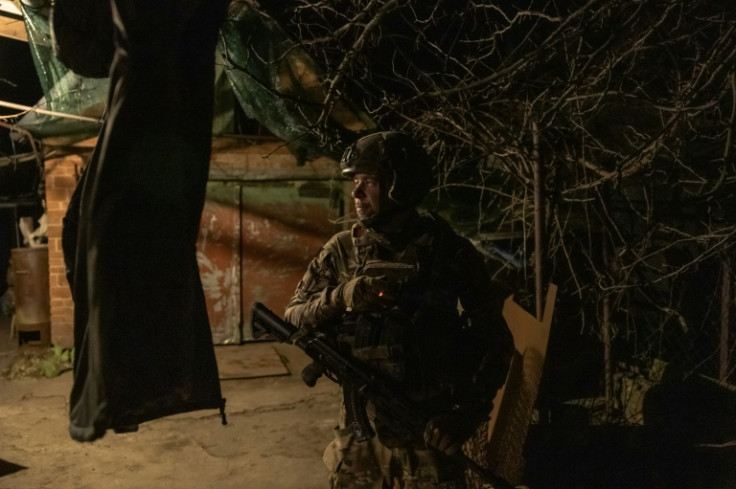
Sitting in a steamy kitchen, Ukrainian soldier Anton was ready to go on a new rotation to defend Chasiv Yar, a strategic town for troops fighting for control of the eastern Donbas region.
After a year of mostly-frozen front line, Russian forces are pushing against a Ukrainian army struggling with manpower and ammunition shortages amid delays in Western aid.
Determined to build on recent gains, Russian forces are aiming to seize the dominant heights of Chasiv Yar.
The town lies some 20 kilometres (12 miles) west of Bakhmut, which Russia seized last May after months of brutal battles.
"If Russians take Chasiv Yar, the door to other cities will open... so it's important to block them there," 40-year-old Anton said.
From Chasiv Yar's heights, they would have a powerful foothold and be able to target cities downhill: first Kramatorsk and then, potentially, Sloviansk.
The two civilian hubs hold a symbolic value for Moscow: a decade ago, pro-Russian separatists briefly seized the cities in the first clashes with Kyiv.
Now on the front line, Chasiv Yar lies down the road from Bakhmut.
In that direction, Anton said Russia is using "a lot of manpower, quite a lot of ammunition, there is constant aviation and artillery work."
For now, the soldier from the 5th Assault Brigade said his unit was "managing to hold on."
Ukrainian and Russian military bloggers said Friday Russian troops had reached the town's outskirts.
But Ukraine's army chief Oleksandr Syrsky said Saturday "Chasiv Yar remains under our control, all enemy attempts to break through the settlement have failed."
He said the town was seeing some of the "fiercest fighting" with Russian troops "trying to break" its defences.
The head of Chasiv Yar Sergiy Chaus refused to comment on military matters but told AFP the situation had become more dangerous in the last two weeks.
"They used to be moments when you could hear silence in the city, now there is no silence... There is constant fire," Chaus said.
Soldiers wounded in Chasiv Yar could now struggle to get emergency care.
Reaching a stabilisation point -- which provides basic treatment before evacuation -- may become impossible.
The last known stabilisation point was recently moved out of the city for safety reasons.
A medic in the relocated facility told AFP evacuation teams were not going into Chasiv Yar anymore as it was too dangerous.
"If they (wounded soldiers) are taken out, they are taken out by car," 24-year-old Nadiya, a medic, said.
She said she saw wounded soldiers walk for hours "because there was no other option to get out of those positions."
Just back from a rotation near the hotspot city, 25-year-old Sergiy said the situation in Chasiv Yar was "much harder now."
The 5th Assault Brigade soldier nicknamed Moped, had dark circles around his eyes that he often rubbed.
"Many drones have started working now. Both Mavics and First Person View drones, all working both day and night," he said.
His comrade Yegor -- call-sign Zhiguli -- said the drones were more precise, making them scarier than artillery.
"The drone will keep flying until it takes you out or falls near you, to maim you until another one comes," the 27-year-old said.
"The first one cripples you, the second one drops and finishes you off."
Yegor said Russian troops were using their resources more rationally than in battles at the start of their invasion in 2022.
Bogdan, a 21-year-old soldier, agreed.
"They're learning, they've learned, they're not stupid... it's not the same army as in 2022."
But some strategies remain the same, soldiers said, with the destruction of Chasiv Yar reminiscent of previous Russian battles that left cities flattened.
"They destroy everything and then sit by themselves in these ruins," Sergiy said.
The head of the city Sergiy Chaus said "there is not a single intact building left."
Around 770 residents remain in the city, compared to 13,000 people before the war, he told AFP.
For soldier Sergiy, the capture of Chasiv Yar would subject populations downhill to increased shelling.
"There are people, there are children (there). And as long as (Chasiv Yar) is holding up, they continue to live there."
A dozen kilometres from Chasiv Yar, in Kostyantynivka, a local told AFP he feared Russian advances.
Sitting on a bench outside his home, Andriy Komarystov said he had nowhere to go and had to help his mother and elderly neighbours.
"They will plant potatoes and weed their garden in any case. And won't go anywhere," he said, petting a black dog named Mouse.
"We will sit here until the end. And if we get hit, we get hit, that's it."
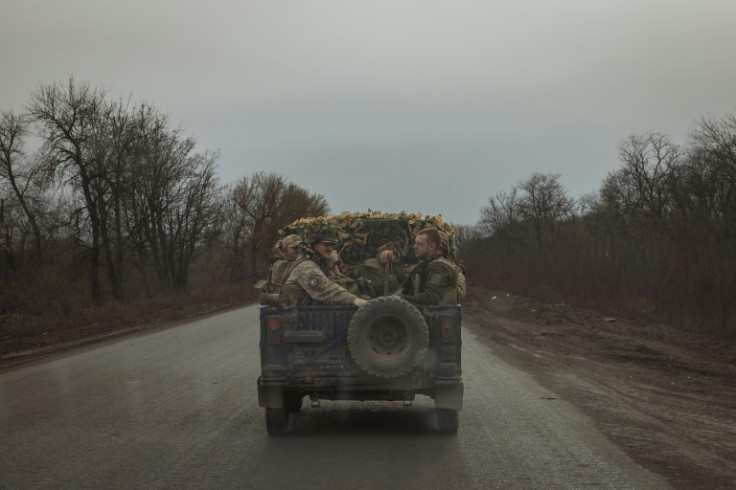
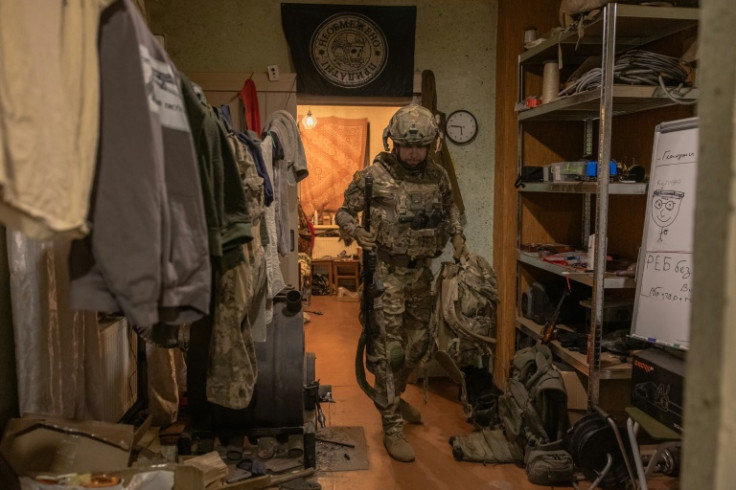
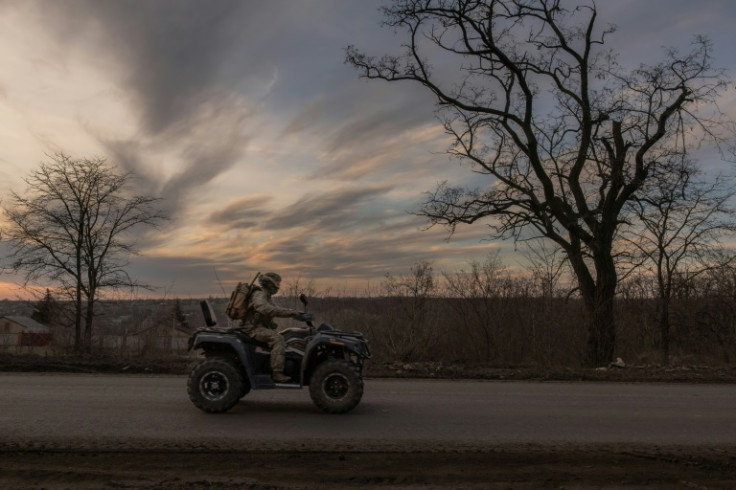
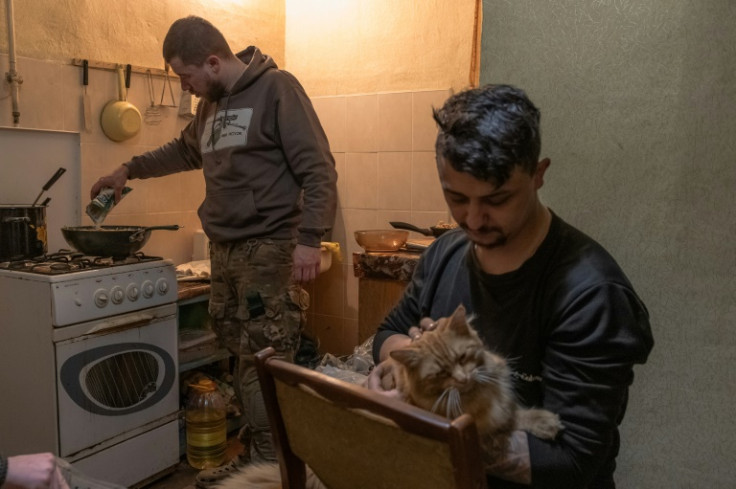
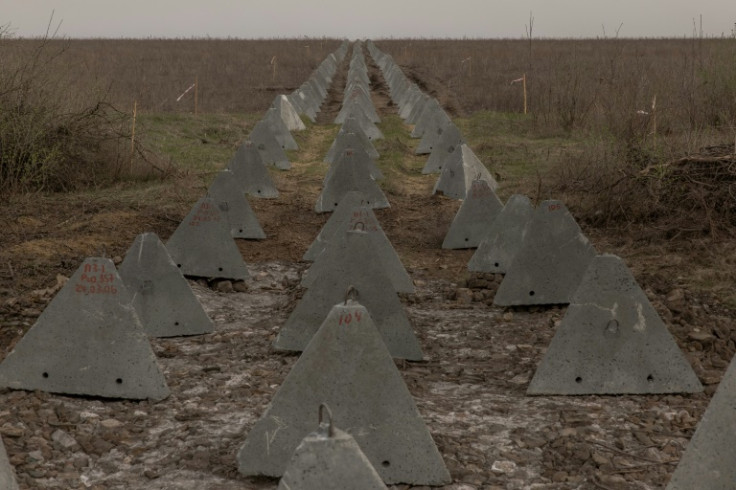
© Copyright AFP 2024. All rights reserved.





















